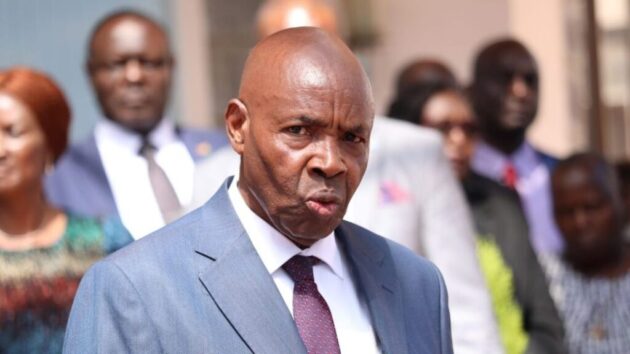
To revamp the education system and promote equitable access to schooling and learning, the Ministry of Education in Kenya is planning to introduce new school placing rules. This move comes as part of a broader initiative to align the education system with global trends, regional goals, and national priorities and values.
The Ministry’s draft Sessional Paper No X of 2024, which will be subjected to public participation, aims to review the categorization of public secondary schools and establish a framework for the selection and placement of learners into career pathways in senior school. By doing so, the Ministry hopes to provide students with a more tailored education experience that aligns with their interests and abilities.
One of the key objectives of the proposed changes is to ensure the adequate delivery of the Competency-Based Curriculum (CBC). The Ministry seeks to review students’ operational costs and provide minimum essential packages in schools that are necessary for the effective implementation of the CBC. This move reflects the government’s commitment to enhancing the quality of education and ensuring that students receive a well-rounded learning experience.
- TSC to Deploy 6,000 Teachers to Special Schools – Addressing the Shortage of Educators

- The Impact of Low Teacher Pay on School Finances in Kilifi County

- Alert! Learners Staying Away from Public Institutions

- TSC Recruitment News: 26,000 Interns to be Confirmed into PNP and 20,000 Teachers to be Employed in JSS

- Orengo’s Call for Teachers to be Given a Slot at TSC – A Step Towards Empowerment

- Kenyan Government to Release Sh16.25 Billion in Capitation Funds for Secondary Education in 10 Days
The Ministry’s proposal takes inspiration from the recommendations made by the Presidential Working Party on Education Reforms (PWPER), which was established in September 2022. The PWPER’s recommendations aimed at transforming the education sector across all levels, including Basic Education, TVET (Technical and Vocational Education and Training), and University education. By incorporating these recommendations into the Sessional Paper, the Ministry is showing its dedication to implementing meaningful reforms that will shape the future of education in Kenya.
In addition to curriculum enhancements, the Ministry also recognizes the importance of providing comprehensive support services to students. Plans are underway to strengthen the provision of career guidance, counseling, and mentorship programs at all levels of education and training. These initiatives will help students make informed decisions about their future career paths and provide them with the necessary guidance to succeed in their chosen fields.
Furthermore, the Ministry aims to leverage technology in the provision of quality education. This includes the use of digital platforms and tools to enhance teaching and learning experiences. By embracing technology, the Ministry hopes to bridge the digital divide and ensure that all students have equal access to educational resources, regardless of their geographical location or socio-economic background.
Another crucial aspect of the Ministry’s proposal is the integration of environmental and climate change education at all levels of education. Recognizing the urgent need to address environmental challenges, the Ministry seeks to develop and implement an environmental and climate change framework. This will equip students with the knowledge and skills to become responsible stewards of the environment and contribute to sustainable development.
In line with the government’s focus on promoting science, technology, engineering, and mathematics (STEM) education, the Ministry plans to develop and implement a policy framework on STEM education, training, and research. This highlights the importance of equipping students with the necessary skills to thrive in the rapidly evolving technological landscape.
Moreover, the Ministry recognizes the significance of social media, life skills education, indigenous knowledge, and entrepreneurship. It intends to develop and implement a policy framework that addresses these areas, providing students with a holistic education that prepares them for the challenges and opportunities of the modern world.
While the Ministry’s proposal for new school placing rules is commendable, it is essential to remain critical and ensure that the implementation process is executed effectively. The success of any education reform relies on proper implementation, adequate resources, and continuous evaluation. The Ministry must engage stakeholders, including teachers, parents, and students, to gather feedback and address any concerns that may arise during the implementation phase.
In conclusion, the Ministry of Education in Kenya’s proposal for new school placing rules is a step towards achieving equitable education and aligning the education system with global trends. By reviewing the categorization of public secondary schools and establishing a framework for career pathways, the Ministry aims to provide students with a more tailored education experience. Additionally, the integration of comprehensive support services, technology, environmental education, STEM, and life skills education reflects the Ministry’s commitment to preparing students for the challenges of the future. It is crucial for all stakeholders to actively participate in the implementation process to ensure its success and make a positive impact on the education sector.


